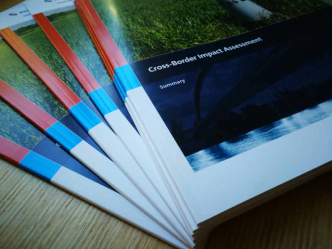Dossier 2: Recognition of professional qualifications
The Directive
The recognition of professional qualifications has been one of the capacities of Europe ever since the early days of the European Community (as set out in the Treaty of Rome). Over time, a huge number of tools have emerged to facilitate the mobility of practitioners of regulated professions.[1] The most recent is Directive 2013/55/EU, which updates a number of aspects of the existing Directive 2005/36/EC. In practice, professional practitioners report difficulties in practical matters such as obtaining information and the duration and expense of the procedures. Central within this research into the recognition of professional qualifications is the question of how certain practical matters that are of particular importance to the frontier worker are to be implemented and enforced in certain countries/states after the modernization of Directive 2005/36/EC brought about by Directive 2013/55/EU.
Geographical area
Research into the recognition of professional qualifications as a component of ITEM’s cross-border impact assessment is focused on three countries/states, being based specifically on the area bordering directly on the Province of Limburg. Because the procedures for recognition for frontier worker are the same as for a professional from a country not directly bordering on the Province of Limburg, the research does, however, have broader implications. Consequently, the research comprises the entire Dutch-Belgian frontier and the entire border area between the Netherlands and the German state of North Rhine-Westphalia (Nordrhein-Westfalen).
Systems of recognition
The European legislation on the subject of recognition of professional qualifications is implemented ‘in various places’. Because the directive provides two systems for automatic recognition (only available for specific professions) and one general system for recognition (under which most professions fall), the European regulations in this area are generally implemented in horizontal and sector-specific legislation. As a result, the process of recognition generally differs for each profession and sector.
For the recognition of professional qualifications dossier, ITEM conducted a mapping study of the potential frontier effects of Directive 2013/55/EU. As a consequence of the fragmented nature of the legislation on the recognition of professional qualifications and the fact that the procedures are usually defined at the profession or sector level, the research focuses on the following professions: junior medical/medical specialists, nursing staff, child care professionals, and electricians. These selected professions represent several different scenarios for recognition under European legislation, and are among the most mobile sectors under Directive 2005/36/EC.[2]
The underlying concept of recognition of professional qualifications is based on a few key principles. The topic is particularly relevant in the context of Union citizenship, the free movement of persons, non-discrimination, and the principle of mutual recognition. To test whether the Netherlands, Belgium, and North Rhine-Westphalia have implemented Directive 2013/55/EU in light of these principles, ITEM reviewed the legislation for the four selected professions against nine different indicators.
These indicators were defined based on the perspective of the frontier worker. Specific factors considered were the decision period, costs of the procedure, the language of the required documents accepted by the authorities, the quantity of documents required, the number of different desk contacts required throughout the process, availability of a central information point, option for electronic procedures, whether an Assistance Centre is available, and the way in which professional qualifications are recognized. After the analysis of the indicators by profession and by country/state, a score was assigned to each profession (max. 900).
The research reveals that the recognition procedures for the various professions score differently in the different countries. In general, the doctors scored lower, the nurses scored average, and the child care professionals and electricians scored higher and lower, depending on the area studied. The analysis also showed that procedural aspects can be the primary source of negative frontier effects. This specifically refers to the costs of recognition procedures, the method of requesting recognition, the language in which the documents will be accepted, and lack of clarity on obtaining information.
Conclusion
It can be concluded that the countries/states studied have properly implemented the actual provisions of Directive 2013/55/EU, so from a material perspective, it should be possible to set up a functioning recognition process. Nonetheless, the analysis reveals that a number of practical issues can give rise to obstacles, as a result of which the countries/states studied do not always offer the most advantageous facility for the frontier worker. The fact that some authorities only accept documents in one language is an example of such an issue; likewise, identifying the correct competent authority for the recognition and lack of clarity about the costs of the process can also be a problem. Multiple language choices for documents and more effective information flows would help streamline the recognition process.
Finally, it is worth making one final observation on this dossier. Despite the fact that the scores would appear to suggest the negative frontier effects are limited, the sheer number of cases in practice where problems with recognition are encountered indicates that the reality is different. This demonstrates a discrepancy between the legislation and the practice of obtaining recognition. Although the legislation is not particularly problematic, the reality tells a different story. Remedying this gap between the legislation and the practice is an essential objective associated with the recognition of professional qualifications.
_____________________________________________
[1] A regulated profession is a profession for which specific requirements governing the practice of the profession are dictated by law. As a consequence of the free movement of persons, access to nonregulated professions is unrestricted in the EU.
[2] Commission staff working paper – Impact assessment – Accompanying document to the Proposal for a Directive of the European Parliament and of the Council amending Directive 2005/36/EC on the recognition of the professional qualifications and Regulation on administrative cooperation through the Internal Market Information System, SEC(2011) 1558 final, p. 6.

